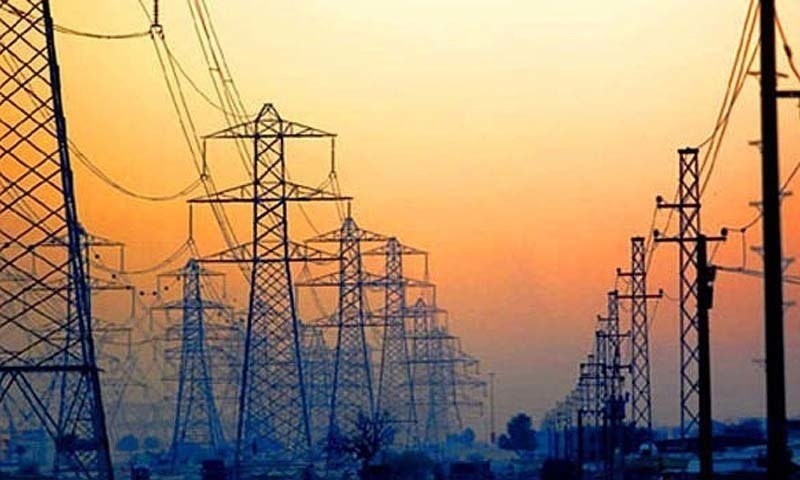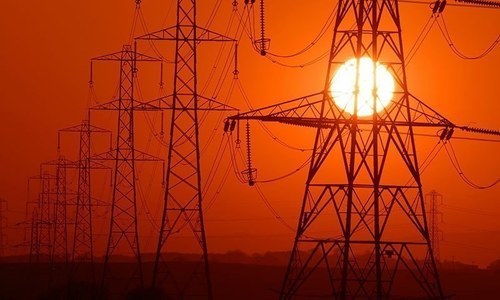ISLAMABAD: Amid tight demand and supply situation, the fuel related problems continue to jolt the entire energy sector chain, compelling the authorities to shift some of the power plants on high-speed diesel (HSD) — the most expensive fuel.
Informed sources told Dawn that with upsurge in power demand following increase in summer temperatures, the authorities were literally utilising all fuels to run maximum power plants in the public and private sector to minimise electricity loadshedding.
These sources said some private parties were requesting the government to allow them LNG imports for direct sales to private power plants, textile and CNG sector at almost half the price at public sector entities — PSO and Pakistan LNG Ltd (PLL) — were importing LNG but were facing institutional resistance.
The diversion of re-gasified liquid natural gas (RLNG) from Sui Northern Gas Company Ltd (SNGPL) to Sui Southern Gas Company Ltd (SSGCL) to improve power generation in Karachi and reduce electricity shortage had turned upside down the merit order of the National Transmission & Despatch Company (NTDC).
Seek permission to import LNG
The Independent Power Producers (IPPs) are protesting over low LNG supply who had been directed to utilise high-speed diesel for power generation instead of LNG. Last week, the government had also ordered import of furnace oil — another expensive fuel — to meet power demand in the national grid and KE system.
Informed sources said the SNGPL was hardly in a position to meet the fuel requirement of three bigs — Bhikki, Balloki and Haveli Bahadur Shah of about 1320 megawatts each. It was compelled to give up 80-150 million cubic feet of gas for Karachi.
Resultantly, the Central Power Purchasing Agency (CPPA) was asking many other private sector plants to utilise HSD. Sources in at least four IPPs confirmed to Dawn that they had been asked to get prepared for HSD. This in turn is also adding pressure to the already tight supply chain of HSD for transport fuel. As of now, total HSD stocks were no more than nine-day transport consumption.
As if that was not enough, the utilisation of HSD and furnace oil for power generation would significantly increase the fuel cost and burden the consumers who were already breaching their slab benefit limits because of higher consumptions.
On Monday, two IPPs formally wrote to Ministry of Energy Omar Ayub Khan to protest over the latest situation. Seen by Dawn, letters by Halmore and Sapphire Electric Power companies to Mr Khan said they had been directed by “CPPA to operate a number of RLNG based plants on HSD. One of the plants was already running on diesel, while others have been asked to remain ready”, it said.
The IPPs said limited RLNG quota was made available to these plants partially in May and early days of June, which is no more available now. “We remain bound to despatch electricity on diesel under the power purchase agreement” but this was not in the benefit of the end consumers.
The IPPs pointed out that power despatch on diesel cost the government Rs15-20 per kwh (unit) which would come down to Rs7-8 per unit if it was done on spot RLNG and significantly benefit the consumer.
They have also pointed out that power sector cash flow position was significantly under pressure due to Covid-19 pandemic and this expensive power generation would further aggravate circular debt status and immediate cash flow position of CPPA and power plants.
Furthermore, the continued use of diesel for power generation will be contributing to “an imminent diesel supply crisis to the petrol pumps and hence masses specially transport and logistic sectors will suffer”.
The minister had also been told that the government was underutilising its LNG terminal (70pc in March/ April/May) and pipeline network. This also increased the overall cost of RLNG molecules and generated power to the end consumer.
It has been pointed out that the existing RLNG supply chain had to follow a lengthy tendering process and also had to balance out commitments under existing contracts. In this situation, private sector can secure LNG in less than 10 days from RLNG spot market for next few months provided all necessary approvals are accorded by the government and thus ensure that cheap power was despatched to consumers until current crisis is over.
“If allowed power generation cost from these two plants will be reduced to half, an imminent diesel shortage will be avoided and overall terminal, and, pipeline cost would be reduced due to closer to optimal utilisation”, the letter pleaded.
Published in Dawn, June 30th, 2020















































